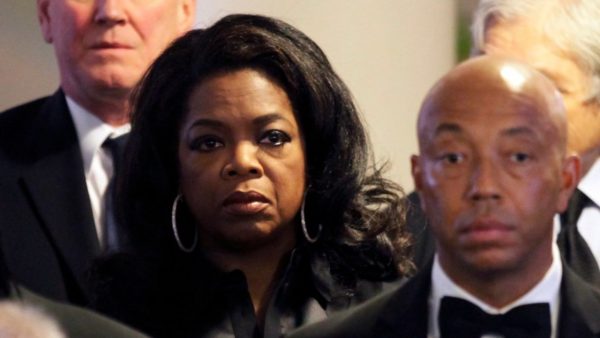
Five years after media mogul Oprah Winfrey’s high-profile exit from the MeToo documentary On The Record, the fallout from the project continues to reverberate—this time in court. Former Def Jam executive Drew Dixon, one of several women who accused Def Jam co-founder Russell Simmons of sexual assault, has now subpoenaed Winfrey in her ongoing defamation lawsuit against Simmons.
According to Page Six, Dixon’s legal team has formally demanded that Winfrey provide testimony and turn over documents related to her brief involvement with the controversial documentary, which spotlighted the stories of women who say they were victimized by the hip-hop mogul.
Background on the Allegations and the Lawsuit
In 2017, Dixon went public in a New York Times article, accusing Simmons of raping her in his apartment in 1995. Her account became central to On The Record, the 2020 documentary that chronicled multiple women’s allegations of sexual misconduct against Simmons. However, Winfrey, who was initially attached as executive producer, withdrew from the project weeks before its Sundance debut, citing creative differences with the filmmakers.
At the time, Winfrey publicly stated she still believed Dixon. But according to The New York Times, she also expressed concern that there were “inconsistencies” in Dixon’s account that the documentary failed to address. The filmmakers countered by claiming they had extensive documentation corroborating all the women’s stories.
Fast forward to 2024, Dixon filed a defamation lawsuit against Simmons over comments he made during a 2023 interview with journalist Graham Bensinger. In that sit-down, Simmons did not name Dixon directly but cast doubt on his accusers’ credibility, stating, “Could someone want notoriety in the market where people thirst for fame?” He also insisted, “I’ve never been forceful in any of my relationships,” and that all encounters were “consensual.”
Dixon’s lawsuit claims these statements, and others Simmons made referencing Winfrey’s withdrawal, damaged her reputation and suggested she was dishonest in her allegations.
Oprah’s Role Comes Into Focus
Now, with the subpoena filed, Oprah is being asked to produce records and potentially testify about her involvement with the documentary and any communications she had regarding Dixon’s allegations. A copy of the subpoena reviewed by Page Six demands Winfrey provide “books, records, papers, data, documents, evidences, writings, and all other tangible things” related to the case by March 18, 2025.
Additionally, the subpoena calls for Winfrey to “appear and attend before a notary public or other person authorized by law to administer oaths” and testify in a deposition.
It is currently unclear whether Winfrey plans to comply with the subpoena or if her legal team will challenge it. The documents requested, detailed in a “Schedule A” attachment not made public, could potentially include internal emails, phone transcripts, notes from interviews with accusers, and other materials that might shed light on the behind-the-scenes process of the documentary’s production and her decision to leave the project.
The case raises questions not only about the boundaries of public commentary, but also about the responsibility of public figures like Winfrey who wade into sensitive territory and then walk away. It also highlights the ongoing legal and cultural consequences of the MeToo movement, particularly in the music industry, where several high-profile men have faced public accusations and legal fallout.
Simmons has consistently denied all allegations of sexual misconduct. Dixon, meanwhile, remains a vocal advocate for survivors and a central figure in one of the most prominent cases to emerge from the MeToo era in hip-hop.
As the legal process unfolds, all eyes will be on whether Oprah Winfrey takes the stand—and what, if anything, her records reveal.